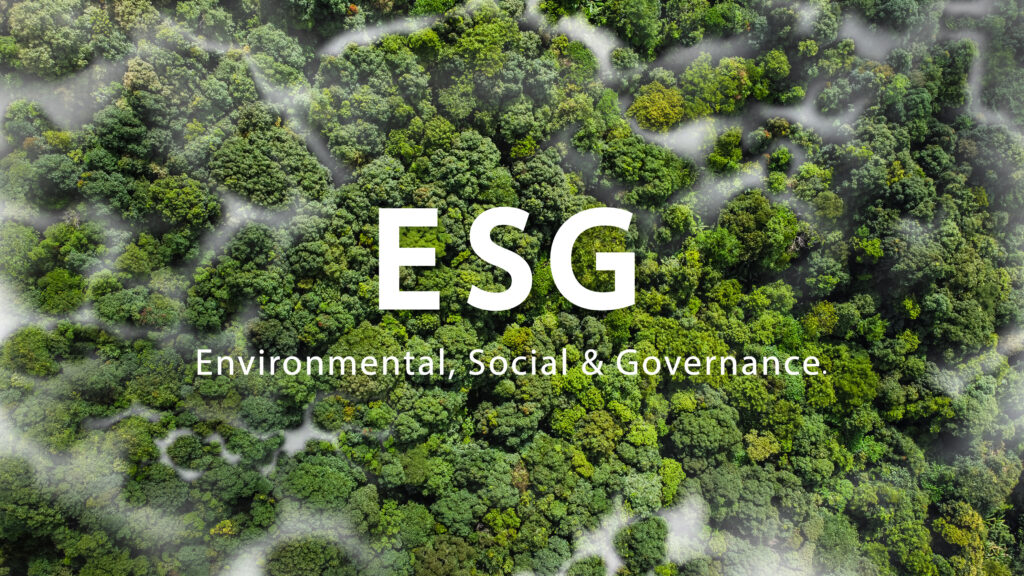
The Future of Sustainability: Emerging Trends in ESG for 2024
The Future of Sustainability: Emerging Trends in ESG for 2024
Environmental, Social, and Governance (ESG) principles’ importance in shaping business practices and societal values has never been more pronounced. As we move towards 2024, the evolving landscape of sustainability calls for a deeper understanding and integration of ESG frameworks. This evolution reflects a growing consensus on the urgent need for action against climate change, social inequality, and governance transparency. As we delve into the latest trends, innovations, and shifts in the ESG arena, it’s clear that the future of sustainability is not just about compliance but also about embracing opportunities for positive change.
Latest Trends in ESG
Digitalisation and Sustainability
The convergence of technology and sustainability is paving the way for more efficient and effective ESG practices. From blockchain for transparent supply chains to AI-driven energy management systems, digital tools enable businesses to reduce their environmental footprint, enhance social well-being, and practice good governance.
Corporate examples include Johnson & Johnson and Ericsson, which showcase how companies integrate digital solutions to enhance sustainability. Johnson & Johnson, for instance, has implemented Industry 4.0 technologies like digital-twin and advanced process control technologies to optimise energy use in manufacturing, significantly reducing the environmental footprint at their Cork site. This approach improved plant reliability and cost-efficiency and became a sustainable model across their global sites. On the other hand, Ericsson built sustainability into the very design of its Lewisville, Texas, site. By employing smart HVAC systems, using renewable energy sources, and incorporating sustainable building materials, Ericsson reduced energy consumption significantly. This holistic approach to sustainability demonstrates how digitalisation can support environmental goals and promote efficient business practices.
Circular Economy in Focus
The concept of a circular economy—aiming for zero waste and the continual use of resources—is gaining traction. Companies are innovating in product design, materials recycling, and business models to minimise waste and maximise resource efficiency.
Climate Finance
An increasing focus on climate finance highlights the role of green bonds, sustainability-linked loans, and other financial instruments in supporting environmental objectives. These investments foster sustainable development and offer new avenues for growth and profitability.
Innovations Driving Change
Renewable Energy Technologies
Advances in solar, wind, and battery storage technologies are revolutionising the energy landscape. These innovations make renewable energy more accessible and affordable, accelerating the transition to a low-carbon economy.
ESG Integration in AI and Big Data
The application of AI and big data in ESG practices offers unprecedented opportunities for monitoring environmental impacts, enhancing social welfare, and ensuring corporate accountability. These technologies provide insights and foresight that drive more informed and responsible decision-making.
Sustainable Agriculture and Food Systems
Innovations in agriculture—from precision farming to alternative proteins—address the dual challenges of feeding a growing population and protecting the planet. These advancements reshape food production and distribution, making them more sustainable and resilient.
For actual examples of sustainable agriculture and food systems, the World Wildlife Fund (WWF) highlights initiatives in Mozambique and Tanzania. In Mozambique, the Primeiras e Segundas Environmental Protection Area emphasises community-managed resources and sustainable farming, increasing food security and biodiversity. Tanzania’s Southern Agricultural Growth Corridor empowers local communities in resource management, significantly improving ecosystem health and food security through community-driven efforts. These examples underscore the potential for community ownership and women’s empowerment in transforming food systems towards sustainability.
Shifting Perspectives
Consumer Demand for Sustainability
Today’s consumers are more informed and concerned about their purchases’ environmental and social impacts. This shift is compelling companies to adopt more sustainable practices and to be more transparent about their ESG efforts.
Regulatory Changes
Governments worldwide are introducing stricter regulations and standards for sustainability, pushing businesses towards greater ESG compliance. These regulatory changes are setting a new baseline for corporate responsibility and accountability.
Corporate Transparency and Reporting
There is a growing demand for more comprehensive and honest ESG reporting. Stakeholders, including investors, customers, and employees, seek greater transparency about how companies address ESG challenges and opportunities.
How Businesses and Individuals Can Adapt
Strategies for Businesses
To thrive in this changing landscape, businesses must embed ESG principles into their core strategies and operations. This involves assessing and mitigating risks, seizing new opportunities, and engaging in continuous learning and innovation.
Individual Actions
Individuals play a critical role in driving sustainability. Through informed choices, advocacy, and support for sustainable businesses and practices, people can influence companies to prioritise ESG values.
Building a Sustainable Future Together
Achieving sustainability goals requires collaboration across sectors and disciplines. By working together, businesses, governments, non-profits, and individuals can create a more sustainable and equitable world.
Conclusion
As we look towards 2024 and beyond, the future of sustainability is undeniably intertwined with the evolving ESG landscape. Today’s trends, innovations, and shifts are challenges and opportunities—for businesses to grow responsibly and for individuals to make a positive impact. By embracing these changes and working together towards common goals, we can ensure a sustainable future for future generations. Let’s commit to action, innovation, and collaboration in our journey towards sustainability.
Share this post on social
Our new website is coming soon
Subscribe and be the first to know when we go live!
